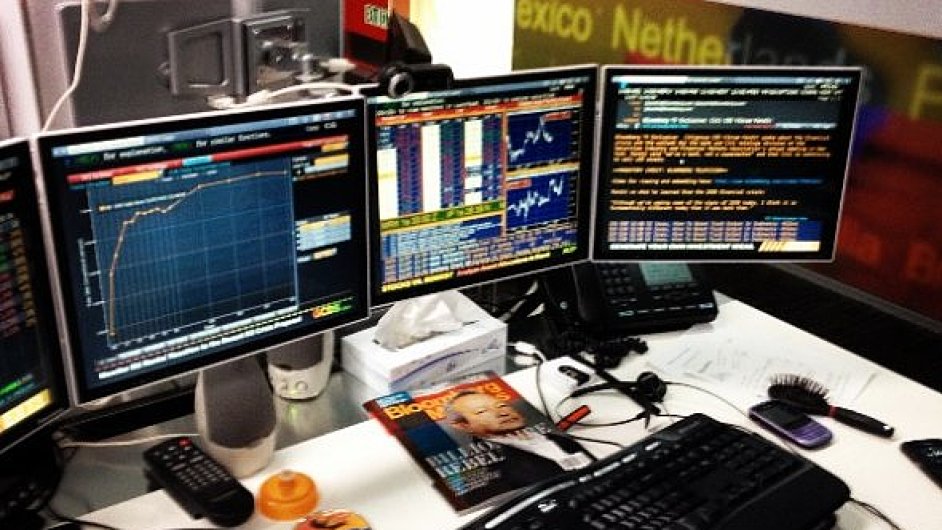The freedom to speak out in China, or rather the lack of it, is under constant media attention. Journalists leap at any sign that the situation in China might be improving, and the most recent of such signs was the trial of a Chinese politician, Liu Tienan, after being exposed by Luo Changping, a Chinese journalist. But does this actually mean that the situation in China is improving in any way, or is the popular media simply trying to assure us that the country whose economy is likely to outgrow that of the United States in the next decade isn’t as restrictive and abusive of human rights as we may think it is?
To say that there is little freedom of speech in China would be to state the obvious – we have all heard or read that sentence at least once. But a couple of weeks back, the situation seemed to be changing, because the media was practically plastered with the story of Luo Changping, a Chinese journalist who had carried out a campaign against Liu Tienan, speaking out against what he perceived to be corruption. The story ended with an arrest which the media immediately took hold of – not because it was an arrest that clearly limited freedom of speech, but because the Chinese authorities arrested the corrupt politician, which the media perceived to be a turning point for the freedom of speech in China.
With all the media hype about the ‘changing situation’, it’s easy to assume that the situation really is changing, and certainly there have been many stories reporting things to this effect, but to say that there has been a substantial amount of change would be a lie.
Censorship in China
Over the last few years, Chinese authorities have had a hard time suppressing dissenters because of sites like Twitter and Facebook, both of which are blocked in China. There are twelve government departments in China with the right to seize information and shut down websites on the internet, and these employ over 50 000 trained censors who manage to delete 90% of banned posts within 24 hours.
However, despite these efforts to suppress dissent, several high-profile Chinese personalities and critics of the Chinese government manage to operate on Chinese-approved sites like Sina Weibo, which operate on a similar basis to Twitter.
One of those who have evaded censorship is businessman Kai-Fu Lee, who has over 30 million followers on his microblog (microblog is the general name given to Chinese Twitter-esque websites) account. When the Chinese government shut down his account following an interrogation, the backlash from his followers and from the media was so potent and swift that the account had to be re-opened again.
Charter 08 and Chinese dissidents
However, not all dissidents have had the same luck as Lee – most notably Liu Xiaobo, who was imprisoned for the fourth time after he wrote Charter 08, a manifesto calling for more personal freedom, freedom of speech, economic liberalism, democratic elections and human rights, written in the style of Charter 77 and published on the 60th anniversary of the Universal Declaration of Human Rights.
In Xiaobo’s case, the government could not be persuaded to set him free despite the severe international backlash, and couldn’t be persuaded to allow him to accept his Nobel peace prize in 2010, or to let anyone accept it on his behalf.
Nevertheless, the charter was a culmination of over a decade of loosening control in China, which began with a trial in the 1990s which marked the first time in the history of the People’s Republic of China that a citizen could avail to a constitutional right.
And what now?
One thing is certain, and that is that the Chinese government cannot go on censoring the internet forever. Although China has one of the largest economies in the world, the ‘Great Firewall’ that makes certain sites unavailable from China has also led to a slow and unreliable internet connection, which is beginning to discourage companies from setting up branches in the country, as it can act as an impediment to the growth of these businesses. Therefore, keeping up censorship is becoming a hindrance to the Chinese economy.
Whilst it is safe to say (in my opinion at least) that the freedom to speak one’s mind has increased over the past 20 years, we still cannot speak of a drastic change. China is a long way off from being a country where the right to speak out is secure, and changing the situation would require an almost complete reversal of government policy.
____________________________________________________________
Bottom line: China is a country that is restrictive of human rights, but it is also an economic giant with the second largest economy in the world. This has shaken the belief that a country ruled by a communist system cannot achieve economic greatness. Do you think that China is likely to benefit from following the Universal Declaration of Human Rights, and do you think China is likely to increase freedom within its borders during this decade?
 Přidejte si Hospodářské noviny
mezi své oblíbené tituly
na Google zprávách.
Přidejte si Hospodářské noviny
mezi své oblíbené tituly
na Google zprávách.
Tento článek máteje zdarma. Když si předplatíte HN, budete moci číst všechny naše články nejen na vašem aktuálním připojení. Vaše předplatné brzy skončí. Předplaťte si HN a můžete i nadále číst všechny naše články. Nyní první 2 měsíce jen za 40 Kč.
- Veškerý obsah HN.cz
- Možnost kdykoliv zrušit
- Odemykejte obsah pro přátele
- Ukládejte si články na později
- Všechny články v audioverzi + playlist






